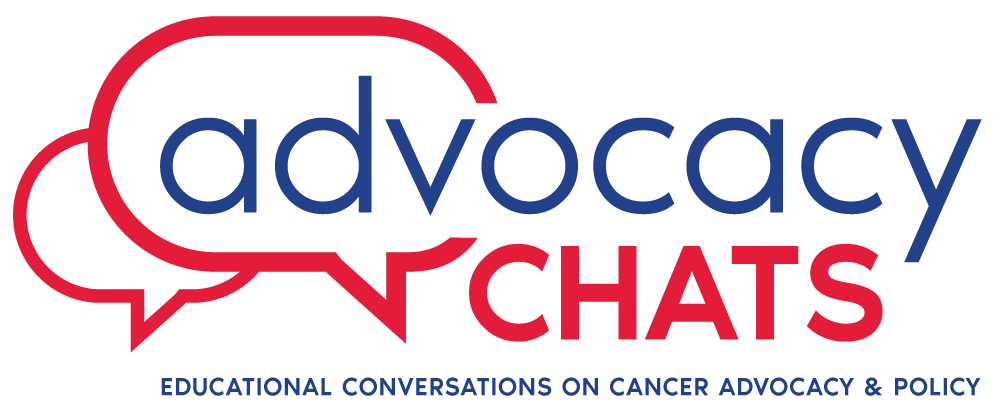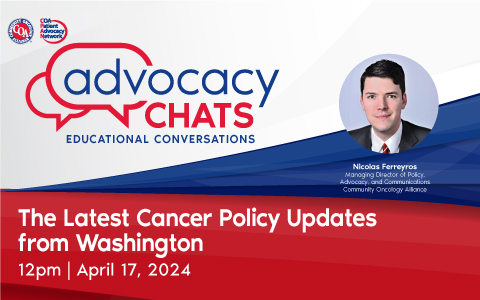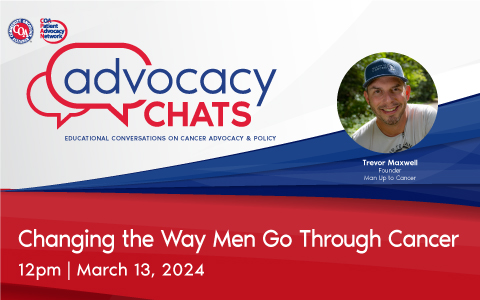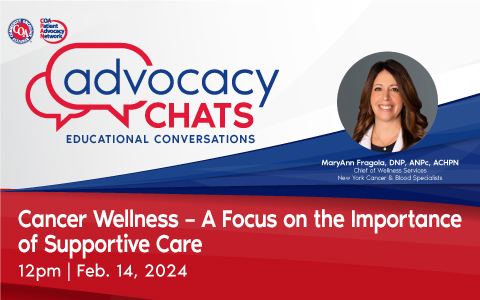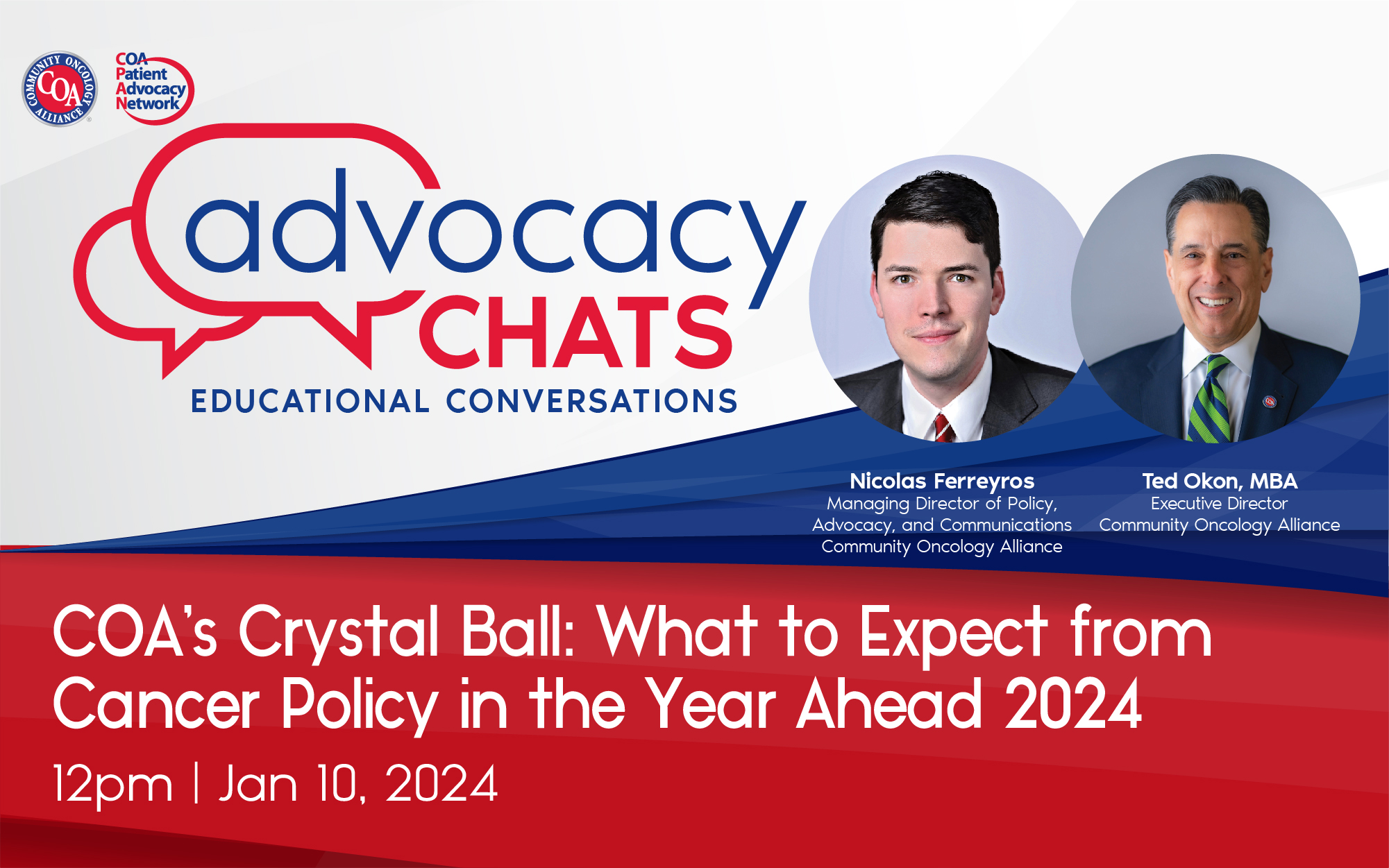Paving the Path for a World Without Colon Cancer
Despite being a largely preventable disease, colorectal cancer is the second most common cause of cancer deaths in America. To help advocates better understand it, the March 2021 Advocacy Chat topic was “Paving the Path for a World without Colon Cancer.” Guest speaker Cindy Borassi, interim president of the Colon Cancer Foundation, joined Rose Gerber, director of patient advocacy and education at the Community Oncology Alliance (COA), to talk about colon cancer and the importance of colorectal cancer screenings. An understandably important issue to the COA Patient Advocacy Network (CPAN), and most other cancer organizations, is cancer screenings. Unfortunately, during the COVID-19 pandemic there has been a dramatic drop in screenings as patients with cancer and other illnesses were understandably reluctant to get screened.
Colorectal cancer is the second most common cause of cancer deaths in the United States. More than 50,000 people will die this year from this largely preventable disease. It is an equal opportunity silent killer, often undiagnosed until patients have symptoms when the disease is in the later stages and more difficult to treat. Guidelines now recommend the first screening should be at age 45, or earlier if the patient has a first degree relative with colorectal cancer.
Though the overall incidence of colorectal cancer has been dropping, cases are on the rise among young people ages 20-29, setting off concerns for providers, caregivers, and advocates. The reason for this demographic shift in age of occurrence is not yet known. This alarming shift is happening not only in the United States, but also in Americanized and Westernized countries.
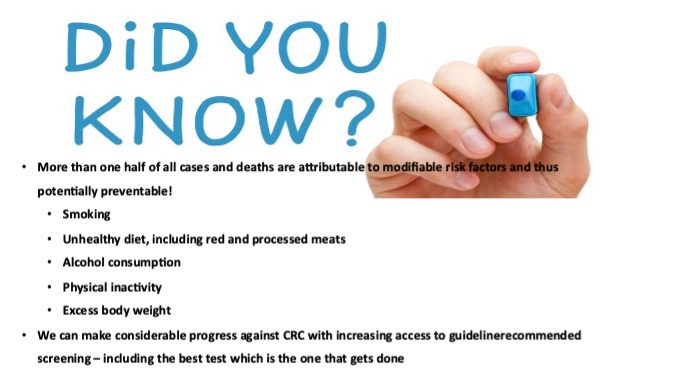
The Colon Cancer Foundation was formed because of the need for greater public awareness of the nation’s second deadliest form of cancer and the importance of expanding research focused on the causes and cures of colorectal cancer. The Foundation’s mission is to get to a world without colorectal cancer through research, advocacy, and prevention.
Cindy noted that the Foundation’s form of advocacy is not lobbying on Capitol Hill, but instead, focuses on advocating for the patients’ right to maintain quality of life and make available fertility preserving care no matter where a patient is treated – in hospital-based clinics or community oncology practices. The Foundation also advocates to make certain all patients have access to care and that clinicians are supported as well, so they may continue to provide optimal care.
The Colon Cancer Foundation’s goal of colorectal cancer prevention means educating patients and increasing awareness through multi-channel and omni-channel campaigns. The Foundation prides itself on campaigns that are a little out-of-the-box and likes to have fun with some of their more irreverent campaigns.
One of the effects of the COVID-19 pandemic has been a decrease in the number of cancer screenings. Patients are hesitant and sometimes even scared to go to their physicians for screenings. Estimates for the reduction in cancer screenings range from one quarter to one third of all screenings may have been delayed or missed. There will be a corresponding increase in patients who will be diagnosed with cancer in later stages than previously seen when screenings were sooner and more frequent.
For all cancer types, screenings are crucial, but maybe more so for colorectal cancer because more than half of all cases and deaths are potentially preventable with early diagnosis and lifestyle changes. When screenings are down, such as during the pandemic, patients of all ages are at greater risk.
Colorectal cancer can be controlled and is treatable in its early stages. Up to 90 percent of all cases do not have to happen. More than half of all cases and deaths are attributed to modifiable risk factors and thus are preventable. These risk factors include:
- Smoking
- Unhealthy diet, including red and processed meats
- Alcohol consumption
- Physical activity
- Excess weight
Patients with cancer, their families, and their caregivers received national support from President Biden when he issued a proclamation designating March 2021 as National Colorectal Cancer Awareness Month. He urged the public to get screened and encouraged citizens, government agencies, private businesses, non-profit organizations, and other interested groups to join in activities that will increase awareness of what Americans can do to prevent colorectal cancer.
What Has COVID Done to Screenings?
COVID has had a devastating effect on cancer screenings overall and especially on the millions who should have had colorectal cancer screenings:
- By mid-April 2020, there was a 90 percent drop in colonoscopies and biopsies.
- By early June 2020, there were an estimated 18,800 missed or delayed diagnoses of colorectal cancer due to 1.7 million missed colonoscopies.
- There will be an estimated 4,500 excess colorectal cancer deaths over the next decade because of that.
- Already existing inequities and disadvantages to the underserved populations are exacerbated by COVID:
- Those without access to broadband or telehealth services
- Those without the digital literacy to utilize video visits
- The uninsured
- The underinsured
The colorectal cancer community and public health authorities have come together to address the impact of COVID-19. Community oncology practices, and other medical providers, follow the Centers for Disease Control and Prevention guidelines to provide a safe, COVID-free environment for screenings, as well as other medical care.
Continued work to overcome screening delays and barriers resulting from the pandemic is urgently needed. The Colon Cancer Foundation will work creatively and collaboratively to find new, system wide changes, not quick fixes. Creativity and flexibility must be applied to address preventative public health issues before the downstream effect grows. Most importantly, patients need to be empowered to be their own advocates.
The Colon Cancer Foundation’s BHAGs (Big Hairy Audacious Goals) for 2021 were announced at their recent meeting:
- 10,000 additional screenings among the uninsured and under-insured population groups.
- Introduce the first colorectal cancer Patient Registry and add 1,000 patients by the end of the year.
The Foundation has dedicated itself to these goals through the money it will spend and the time it will invest.
The Foundation has multiple active campaigns:
- Let’s Get Screened (LetsGetScreened.org)
- The Foundation has partnered with Walgreens to increase access to, and the likelihood of, screenings.
- An edgier irreverent campaign – Give a Crap Challenge (GiveACrapChallenge.com)
- Sign up for one of 100 home tests and receive premiums from Squatty Potty and Duclaw Brewery.
The Colon Cancer Foundation has partnered with Backpack Health to initiate a Patient Registry to help understand why the age of occurrence is dropping. The registry will allow patients to securely track and manage health care data through iOS, Android, and web-based tools that allow for easy sharing of medical information with providers, caregivers, and researchers. Patients can join at https://my.backpackhealth.com/join/colorectalcancerregistry. Their data, along with others, is an advocacy action that will help discover what is driving the demographic change.
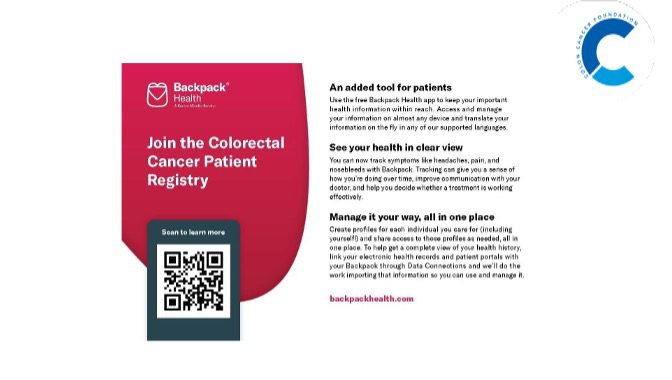
CPAN educates patients, families, and caregivers on the value of community oncology in cancer care. Part of CPAN’s advocacy efforts includes the importance of screenings for early detection and treatment. The Colon Cancer Foundation is focused on the importance of screenings and urges patients to get screened despite COVID-19 obstacles. Each organization’s goals differ yet coincide on the importance of screenings. CPAN collaborates with the Foundation to urge patients to maintain regular screenings for colorectal cancer and all other cancer types.
CPAN Advocacy Chats are regular virtual 30-minute educational conversations about cancer advocacy and policy with a guest speaker invited to discuss issues important to patients and advocates. Summaries of previous Advocacy Chats are available on the CPAN website.
Past Advocacy Chats
